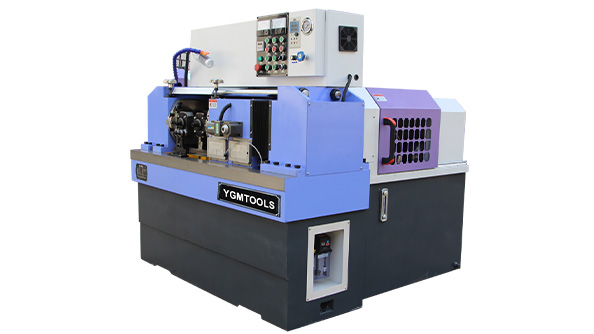
-
 Afrikaans
Afrikaans -
 Albanian
Albanian -
 Amharic
Amharic -
 Arabic
Arabic -
 Armenian
Armenian -
 Azerbaijani
Azerbaijani -
 Basque
Basque -
 Belarusian
Belarusian -
 Bengali
Bengali -
 Bosnian
Bosnian -
 Bulgarian
Bulgarian -
 Catalan
Catalan -
 Cebuano
Cebuano -
 Corsican
Corsican -
 Croatian
Croatian -
 Czech
Czech -
 Danish
Danish -
 Dutch
Dutch -
 English
English -
 Esperanto
Esperanto -
 Estonian
Estonian -
 Finnish
Finnish -
 French
French -
 Frisian
Frisian -
 Galician
Galician -
 Georgian
Georgian -
 German
German -
 Greek
Greek -
 Gujarati
Gujarati -
 Haitian Creole
Haitian Creole -
 hausa
hausa -
 hawaiian
hawaiian -
 Hebrew
Hebrew -
 Hindi
Hindi -
 Miao
Miao -
 Hungarian
Hungarian -
 Icelandic
Icelandic -
 igbo
igbo -
 Indonesian
Indonesian -
 irish
irish -
 Italian
Italian -
 Japanese
Japanese -
 Javanese
Javanese -
 Kannada
Kannada -
 kazakh
kazakh -
 Khmer
Khmer -
 Rwandese
Rwandese -
 Korean
Korean -
 Kurdish
Kurdish -
 Kyrgyz
Kyrgyz -
 Lao
Lao -
 Latin
Latin -
 Latvian
Latvian -
 Lithuanian
Lithuanian -
 Luxembourgish
Luxembourgish -
 Macedonian
Macedonian -
 Malgashi
Malgashi -
 Malay
Malay -
 Malayalam
Malayalam -
 Maltese
Maltese -
 Maori
Maori -
 Marathi
Marathi -
 Mongolian
Mongolian -
 Myanmar
Myanmar -
 Nepali
Nepali -
 Norwegian
Norwegian -
 Norwegian
Norwegian -
 Occitan
Occitan -
 Pashto
Pashto -
 Persian
Persian -
 Polish
Polish -
 Portuguese
Portuguese -
 Punjabi
Punjabi -
 Romanian
Romanian -
 Russian
Russian -
 Samoan
Samoan -
 Scottish Gaelic
Scottish Gaelic -
 Serbian
Serbian -
 Sesotho
Sesotho -
 Shona
Shona -
 Sindhi
Sindhi -
 Sinhala
Sinhala -
 Slovak
Slovak -
 Slovenian
Slovenian -
 Somali
Somali -
 Spanish
Spanish -
 Sundanese
Sundanese -
 Swahili
Swahili -
 Swedish
Swedish -
 Tagalog
Tagalog -
 Tajik
Tajik -
 Tamil
Tamil -
 Tatar
Tatar -
 Telugu
Telugu -
 Thai
Thai -
 Turkish
Turkish -
 Turkmen
Turkmen -
 Ukrainian
Ukrainian -
 Urdu
Urdu -
 Uighur
Uighur -
 Uzbek
Uzbek -
 Vietnamese
Vietnamese -
 Welsh
Welsh -
 Bantu
Bantu -
 Yiddish
Yiddish -
 Yoruba
Yoruba -
 Zulu
Zulu
screw thread rolling machine
Understanding Screw Thread Rolling Machines Technology and Applications
Screw thread rolling machines are pivotal machines in the manufacturing industry, particularly in producing fasteners and various threaded components. These machines utilize a specific cold forming process known as thread rolling, which shapes metal into screw threads through the application of pressure. This method is widely recognized for its efficiency and the high quality of the finished products.
The Working Principle
The primary function of a screw thread rolling machine is to create precise thread forms on cylindrical workpieces. The process involves three main components the rolls, the workpiece, and the feed mechanism.
1. Rolls Typically made of high-speed steel or carbide, the rolls are designed with precise thread profiles that correspond to the desired thread specifications. These rolls rotate and apply pressure to the workpiece.
2. Workpiece The raw material, usually in the form of a rod or bar, is fed between the rolls. The material needs to be ductile enough to withstand deformation without cracking, which is why softer metals like steel, aluminum, and sometimes plastics are commonly used.
3. Feed Mechanism Once the workpiece is positioned correctly, the rolls press down, and significant force is exerted, causing the material to flow and take the shape of the threads on the rolls. This process can create left-hand or right-hand threads, and can produce threads of various diameters and pitches.
Advantages of Thread Rolling
The thread rolling process offers numerous advantages over traditional cutting methods.
1. Material Efficiency Thread rolling is a cold working process, which means that it does not remove material from the workpiece. Instead, it displaces the material to create the thread form, resulting in less waste.
2. Strength The deformation involved in thread rolling improves the grain structure of the material, leading to enhanced tensile strength. Rolled threads typically exhibit superior mechanical properties compared to cut threads, making them more durable under stress.
screw thread rolling machine

3. Dimensional Accuracy Thread rolling machines can produce extremely precise and consistent dimensions. The high accuracy and repeatability of the process are crucial for applications where fitting and function are critical.
4. Surface Finish The process of rolling tends to enhance surface finish, making the threads smoother and promoting better performance in applications such as bolt assembly or in machinery that requires threaded connections.
Applications
Screw thread rolling machines are widely used in various industries, including automotive, aerospace, machinery, and electronics. The production of fasteners such as screws, bolts, and nuts heavily relies on these machines, as they can efficiently handle large production runs while maintaining high-quality standards.
In the automotive industry, for instance, thread rolling is critical for producing components that must endure high levels of stress and strain. Similarly, in aerospace, the strength and reliability of threaded components are paramount due to safety concerns at high altitudes and speeds.
Future Trends
The future of screw thread rolling machines is promising, characterized by advancements in technology. Automation and computer numerical control (CNC) systems are increasingly being integrated into these machines, allowing for greater precision, faster production rates, and the ability to produce complex thread forms that might have been difficult to achieve with traditional methods.
Moreover, as industries strive for sustainability, the efficiency of thread rolling machines continues to gain attention. Their ability to produce less waste and the potential for recycling raw materials align well with modern manufacturing goals focused on reducing environmental impact.
Conclusion
Screw thread rolling machines play a crucial role in modern manufacturing. Their ability to produce high-quality, durable, and precise threaded components makes them invaluable in various industries. As technology advances, these machines will likely evolve, becoming even more efficient and capable of meeting the demands of future manufacturing challenges. The continued reliance on thread rolling technologies underscores their importance in producing the critical components that drive innovation and development in diverse sectors.
